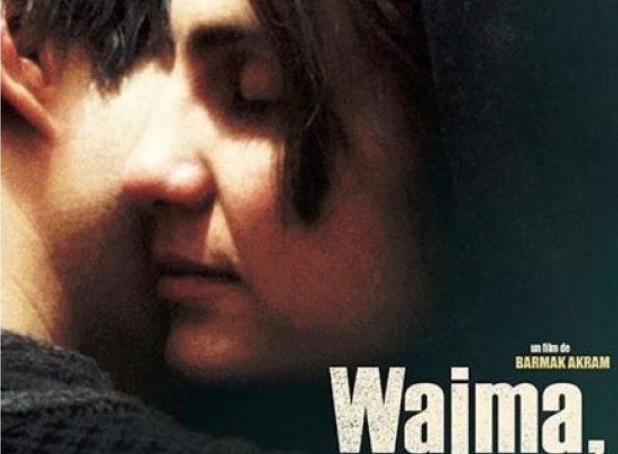ASIA MEDIA INTERNATIONAL WRITES – If you can’t stand scenes depicting violence against women, stay away from “Wajma: An Afghan Love Story.” Filmed in 2013 on a budget as small as they get, and now released on DVD, this was Afghanistan’s submission to the 86th Oscars for Best Foreign Language Film (it didn’t make the shortlist of final nominees). But it should have.
“Wajma” is raw, relentless and all too real— almost unwatchable, and yet so worth watching. The film tells a simple and all too familiar tale: Girl (Wajma, played by the very young actress Wajma Bahar, with an orchestration of emotions almost incredibly dense and convincing) meets a dashing young man named Mustafa. They fall in love. She becomes pregnant. He deserts her. Wajma alone must face the wrath of a punitive, patriarchal Afghani society, a dishonored family and a father who threatens to kill her.
Fortunately, his plans are thwarted. A prosecutor explains that, since he didn’t catch the two young lovers in the act, he cannot claim justifiable homicide—or, in the parlance of human rights groups, this is not an “honor crime”—as defined by the European Committee on Crime Problems, “a crime that is, or has been, justified or explained (or mitigated) by the perpetrator of that crime on the grounds that it was committed as a consequence of the need to defend or protect the honor of the family.”
And so, in scene after scene, Wajma’s enraged father slaps her, beats her with a belt, pushes her deep into the snow, locks her in a storeroom with no heat, and calls her “Slut!” And yet, she lives on.
As films about honor crimes go, this one isn’t as horrific, maybe, as, 2008’s “The Stoning of Soraya,” a Persian-language American drama about a woman falsely accused of infidelity. In the final scene, her father stones her to death, his daughter’s head sinking deeper into the dirt with each blow…. Until she is gone.
But Barmak Akram, the director of “Wajma,” offers his viewers hope. When Wajma boards a plane headed for New Delhi, alone—where abortion is legal— her loving mother sobs uncontrollably as she drives from the airport. Before that, Wajma’s brother gently urges his sister not to cry; and throughout it all grandma, looking ever so grim, remains strong, speechless and sad. Love conquers all, these scenes suggest—at least that is so for familial love, especially when it weaves its way into the hearts of women. (Wajma’s dad stays home, nursing his wounds but calmed by the fact that Wajma, in aborting the baby, will end the family’s shame).
In addition, this movie is bold— for it dares to question the moral superiority of Western mores and values. When Wajma’s mom pleads for her husband to spare the rod (and belt, and foot, and freezing cold), he screams at his wife: “Shut up! What good has your freedom done us?” She does not—and cannot— reply to that.
Somehow, cultural understanding, or empathy, seems to have escaped the audience reviewers who posted about “Wajma” on the movie site “Rotten Tomatoes. ” Among their condemnations: Wajma is about “… a patriarchal society dominated by ignorance and revolting religious value,” that this society “can only lead to intolerance and suffering;” that it is “a culture that’s still mired in the medieval past;” and that Afghanistan maintains an “old fashioned repressive Islamic society (you bet! The birth of Afghanistan dates to the Middle Stone age).
Viewers may want to save Wajma and Soraya, but would unthinkingly eviscerate the deep culture of the civilizations from which these heroines emerged. What a shame. Life is far more complicated than this. Westerners need to get beyond Disneyland and try to gain entrance into the land of reality. The world of Wajma may not be our proper future but the movie is an little low-budget independent classic that’s not to be ignored.

